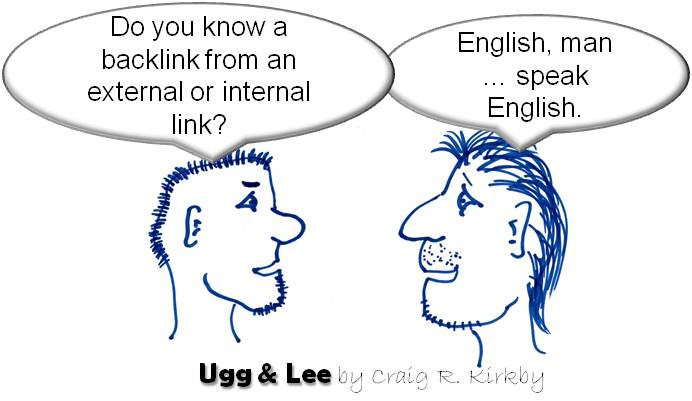Boost Your Website's Ranking with an SEO Copywriter
Fed up with your website never making it to page one or even two of Google’s search results? The good news is that you can do something about it. Helen McCrone looks at one of the most effective methods of improving your website's rankings: content optimization.

Website content optimized for search engines:
the key to good SERP rankings
If you want your website to appear higher up on the unpaid Search Engine Results Page (SERP) of major search engines like Google, Bing and Yahoo!, you need someone who knows how to write search-engine-friendly content.
Someone who can make sure the people who want to buy your product or service find your website and not your competitor’s when surfing the Internet.
That person is a copywriter.
Unfortunately, not all copywriters are made equal, because they all specialize in different areas. So, how can you make sure the copywriter you hire to boost your website’s rankings is the right kind of copywriter?
The answer is found in just three letters…
SEO.
No, I’m not talking about Special Engine Oil (although that is a great way of describing it).
I’m talking about Search Engine Optimization – the process that aims to get your website ranked higher by search engines.
And where does the copywriter fit into all this?
Well, a copywriter writes content for your website. And content has a big impact on SEO. So, to boost your website’s rankings, you need to hire not any old copywriter but an SEO copywriter.
This article takes you through the basics of SEO (in simple terms, I promise!) and the characteristics of a good SEO copywriter.
By the end of the article, you’ll know if the copywriter you want to hire can help increase the visibility of your website.
Can't wait to boost your rankings?
What is SEO and how can it make your website visible?
SEO stands for Search Engine Optimization. It involves adjusting the technical and creative elements of a website to improve its search engine rankings. That’s the list of results that a search engine produces when you ask it to search for some information.
You can find an excellent Beginner's Guide to SEO on moz.com if you want an in-depth tutorial on SEO, but for now, let’s imagine you live in Kitsap county, WA and you’re looking for a mortgage advisor. What do you type into Google’s search page? Probably ‘mortgage advisor Kitsap’.
The websites that appear on page one of Google’s results have word patterns that match your search term plus other factors that make their content relevant to your search query. Yep, they’ve been optimized for search engines using SEO techniques.

How does a search engine ‘rank’ websites?
Each search engine has its own formula for ranking websites, and these formulas are constantly changing. Google is infamous for updating its algorithms on a frequent basis and not being completely transparent about its methods. It certainly keeps SEO specialists on their toes.
But the fundamentals are pretty fixed. Basically, a search engine ‘crawls’ all web pages and documents on the Internet to find the information you’re searching for. It does this by using hyperlinks as pathways (hyperlinks, or links, are usually in blue and underlined, and they enable us to jump from one page to another by clicking on them).
Once the search engine has finished crawling, it produces a list of webpages and documents relevant to your search. Those results are then ranked according to the popularity of the websites containing that information. This means both the relevance and popularity of a website’s content are important factors in ranking a website.
I’ll repeat those two words because they are important…
Relevance and Popularity.
What is SEO copywriting and can it improve your website’s ranking?
One tool that all the search engines like Google, Bing and Yahoo! use to find and rank a website is keyword usage. Keywords are the words we type into the search box of a search engine. In my example above, the search engine would take ‘mortgage advisor Kitsap’ as a keyword phrase and match it with the information I’m looking for.
At one time stuffing a website with keywords would boost rankings, but search engines have become wise to that trick and now penalize keyword stuffing. Be warned!
To be perfectly optimized, a website must blend appropriate keyword usage with useful and well-written content, and it has to have a lot of natural backlinks. Cultivating links from other websites that point back to your own site is essential if you want to improve its rankings.
How do you get backlinks? You start by writing and publishing engaging content. Without that, your backlink opportunities are zilch.

How do SEO copywriters differ from other copywriters?
SEO copywriters know how to write content that ranks well with a search engine. They concentrate not only on keywords but also on content that other people want to link to or share. Natural backlinks increase the relevance and popularity of websites, and as you now know, that is how search engines rank websites.
SEO copywriters also have a basic understanding of what the SEO experts have to do when optimizing a website. They know, for example, the basics of keyword research, the importance of internal links and what makes a bad link, that alt tags for images shouldn’t be empty, that a home page doesn’t need a lot of content because it’s just a gateway, and that local content maximizes search traffic from Google.
Knowing roughly what the tech guys have to do to optimize a website allows the copywriter to become a useful member of the marketing team.
It also means the tech guys won’t have to rewrite your content in an ugly way just to make it SEO-friendly. We copywriters tend to get a bit upset about that…
What are the characteristics of a good SEO copywriter?
To summarize what makes a good copywriter, I’m going to paraphrase from Copyblogger, an authority on content marketing:
An effective SEO copywriter knows how to optimize the content of your website so that search engines understand its relevance, readers want to share it with others, and prospective customers end up buying your product.
Let’s take that summary and turn it into a list of the main skills an SEO copywriter must have.
An effective SEO copywriter can:
- craft landing pages that communicate instantly with the visitor (these pages are where visitors are sent to do one specific thing like download an e-book or place an order, so they need more SEO focus than other pages)
- produce copy that is a mix of relevant information, original content, local content and lead generators
- put primary keyword phrases in titles and makes subheadings informative, descriptive and engaging
- insert keywords in ratio to the rest of the content (appropriate keyword frequency), and use synonyms and related terms to improve user experience
- create succinct meta descriptions (the snippet of copy that you see in the search result) that tell searchers they’ve found what they’re looking for
- add links at the right frequency to relevant interior and exterior pages using natural and relevant anchor text
- use the language of the target audience so that the search engine can match the content of the webpage with what people are searching for
Quite a list, eh? Hopefully, you see now that writing for a website is not the same as writing for a brochure, flyer or any other type of off-line publication. It takes a different set of writing skills.

What you should ask an SEO copywriter before you hire
Now you have a better understanding of SEO and what’s involved in writing website content, you know what skills to look for in a copywriter. To help you identify the right copywriter to boost your website’s rankings, here are some key questions you might ask:
Q: “I’ve heard that keywords are essential to SEO. Can you tell me how you would use them in the content you’d write?”
A really good copywriter will mention specific keyword phrases and keyword frequency, and where to place them. He or she should also tell you that keywords are not the only important aspect of SEO – engaging content and linking are equally important.
Q: “Could you tell me the best practices for linking to other webpages?”
An SEO copywriter should mention as linking to relevant copy, linking to interior and exterior pages, and using naturally relevant anchor text.
Q: “Apart from keyword phrases and linking, could you explain some other ways you’d optimize my website content for SEO?”
Possible answers include including local content, using the language of your target audience, and writing descriptive subheadings.
Q: “What types of content have you worked with before?”
Find out what content creation experience the copywriter has. There are so many different types of copy – from brochures and blogs to press releases and sales letters - that you want to make sure they’re comfortable writing website content.
A quick note about keyword research
I’ve mentioned keywords frequently in this article, but how do you know what your keywords are? The answer is keyword research.
Keyword research involves looking at the words and phrases your prospective buyers use when searching for your product or service. There are lots of keyword search tools out there that you or the copywriter can use.
However, not all copywriters provide this service because it is quite a specialized area. So do ask the copywriter if they do keyword research. If not, they may be able to refer you to an SEO expert who does.
So, there you have it: how to find an SEO copywriter who can help your website be found by your prospective customers. If you found this article useful, perhaps others will as well, so please share it with them! If you're thinking of optimizing your own website content (good idea!), check out my content optimization service.

